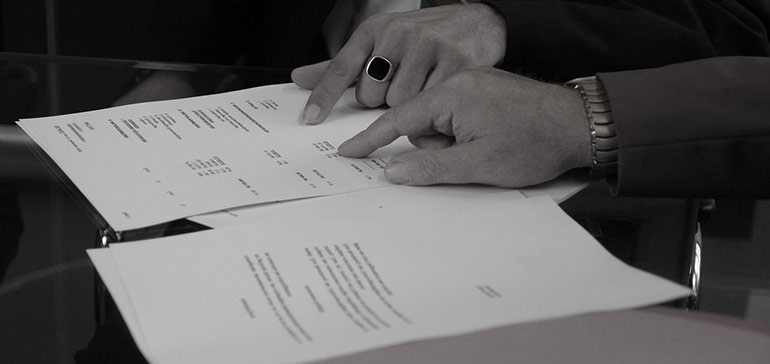CV Blunders Harm Your Chances of Securing Employment
CVs are something of a pet subject of mine and with poor CVs hitting the headlines, and indeed BBC Breakfast, this week I couldn’t resist getting on my soapbox again.
In the news is a report based on polls of almost 200 careers advisers from the National Careers Service and over 2,000 jobseekers and the conclusions, whilst no surprise to me, are worrying.
In addition to the usual suspects of jokey email addresses, spelling mistakes, “Apprentice” style bragging and clichés, a worrying aspect is that many people don’t seem to feel the need to put much effort into their CV.
The national careers Service said:
“Almost 80% of advisers from the National Careers Service said that the most common mistake people made was sending generic CVs to employers and two-thirds (66%) also said that this mistake was the one most likely to stop a candidate being put forward for an interview.
Meanwhile, research among the nation’s job seekers reveals a quarter (24%) of the people questioned admitted to not having tailored their CVs to jobs in the past, with 40% of unemployed people saying that not tailoring a CV to specific job requirements was a frequent mistake they made.”
CV Blunders: Why are they a big deal?
It’s a worry that people know they are making a mistake but don’t do anything about it. Creating a great CV is a lengthy subject so let’s focus on a few key issues to avoid CV blunders.
For me one of the worst features of the current fashion for CVs is the personal statement. Without fail they are so full of clichés and puff that they are invariably worthless.
When giving CV preparation seminars we usually play “buzzword” (often described with another word) bingo.
It goes something like this:
“Everyone put your hand up”
“If your personal statement includes one of the following put your hand down”
Motivated
Team player
Self starter
Can work on own initiative
Excellent communicator
People person
Enthusiastic
Committed
Driven
Loyal
Etc.
It rarely takes more than 4 or 5 words to get all of the hands in the room down and anything this boring and predictable really has no value. It certainly does nothing to differentiate you from the other candidates.
Beyond that, some CVs are so full of cringe-worthy superlatives that they are embarrassing to read. If the candidate really was that good they wouldn’t be searching for a job. It is always better to let your achievements do the talking; bald irrefutable, evidence based facts are way more impressive than bragging.
The survey makes the point that generic CVs are a mistake and it’s clear that standard one-size fits all CVs very rarely impress. As I have said, personal statements are a waste of space and, depending on the role and the number of applications, even covering letters may not be read. It is vital therefore that when an employer looks at a CV they immediately seem something relevant and noteworthy. Employers and roles are all different so this means you must tweak your CV for each role you apply for.
Using the job advert as a lead, together with as much research as possible on the employer job seekers need to make obvious their skills and achievements that are relevant to the job they are applying for.
For sales roles this must include product types, market sectors, sales value and growth. Tailoring this to each employer will require fine tuning to highlight product or market knowledge relevant to them and their plans.
For technical or production roles it may mean tweaking a list of machinery or software the job seeker is competent with so that the prospective employer’s equipment or software is at the top of your list.
It’s not rocket science and clearly there is no place for fabrication but you must make it easy for the employer to see immediately from the first page of your CV why they should interview you.
Another one of my biggest bugbears is spelling. Look, everyone makes spelling mistakes at some point; a word mis-typed or wrongly corrected by spellcheck. In day to day communication you can often get away with it but on a CV it’s a killer. Not because you made a mistake, everyone is human, but because you didn’t put enough effort into checking it on a document that could change your life.
Finally I can’t stop without mentioning email addresses. Some private emails are so ridiculous it is almost beyond belief. partyanimal@hotmail is not likely to generate much confidence in a potential employer and whilst some of those innocuous but slightly whacky addresses may not be this gross they still demonstrate a lack of professionalism. A simple, real, name is much better even if it your ISP forces you to have some numbers in it.
I could go on but the key point here is that most employers have plenty of choice so you need to stand out.
CV Blunders: CV Guides
For most people a CV should follow these guides:
• Short and clearly laid out
• Relevant and tailored to the requirements of each role.
• Important information on page 1
• Key skills and achievements are easy to read if bullet pointed
• Quantify – sales, growth, productivity, quality etc.
• 100% of your quantities should be at the beginning of the line
• Accurate – spelling and factual
• No turn offs – like quirky hobbies, extreme sports or jokes of any kind
A casual approach to CV preparation is a casual approach to job hunting and ultimately your career. If you can’t be bothered to make it special don’t be surprised if no-one calls.
Further information on avoiding CV blunders and other topics can be found throughout this website, particularly “Put your mindset to work” in the reading section.
And at the national careers service https://nationalcareersservice.direct.gov.uk
















